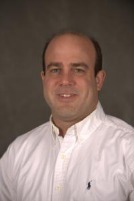非常抱歉,
你要访问的页面不存在,
非常抱歉,
你要访问的页面不存在,
非常抱歉,
你要访问的页面不存在,
验证码:

职称:Associate Professor and Director of Undergraduate Studies
所属学校:Georgetown University
所属院系:Department of Physics
所属专业:Physics, General
联系方式:(202) 687-1238
David Egolf was an A.B. Duke Scholar at Duke University and earned his B.S. in 1990 as a Program II major, meeting the major requirements for Physics, Chemistry, and Math. He received a Ph.D. in Physics from Duke in 1994 for his work on spatiotemporal chaos. After completing his Ph.D., he became a National Science Foundation Postdoctoral Fellow in Computational Science and Engineering at Cornell University working with Prof. Eberhard Bodenschatz. After his time at Cornell, he became the Richard P. Feynman Fellow for Theory and Computing at Los Alamos National Laboratory, collaborating with Dr. Robert Ecke on pattern formation and spatiotemporal chaos at the Center for Nonlinear Studies. Professor Egolf has been a faculty member at Georgetown University since 2000. Professor Egolf is a computational and theoretical physicist whose research focuses on trying to understand systems far-from-equilibrium (meaning that the energy input and the energy dissipated are not precisely balanced at all times). Unlike the situation for systems in equilibrium, researchers have so far been stymied in their efforts to develop a general, predictive theory of nonequilibrium systems. His research group uses the tools of nonlinear dynamics and statistical physics to try to establish the underpinnings for such a theory. Most of the work involves the use of large-scale computation on computer clusters with hundreds or thousands CPUs. The types of systems he studies range from fluid and granular systems to electrochemical waves in heart tissue to idealized mathematical models. In addition to this work in statistical physics, Professor Egolf is part of a collaboration studying effective theories of quantum chromodynamics. His research has been supported by the National Science Foundation, Research Corporation, NASA, and the Alfred P. Sloan Foundation. Professor Egolf is also a dedicated teacher and was awarded the Dean's Award for Excellence in Teaching in 2008. Most years, an undergraduate or two also work with him on their senior thesis research.
David Egolf was an A.B. Duke Scholar at Duke University and earned his B.S. in 1990 as a Program II major, meeting the major requirements for Physics, Chemistry, and Math. He received a Ph.D. in Physics from Duke in 1994 for his work on spatiotemporal chaos. After completing his Ph.D., he became a National Science Foundation Postdoctoral Fellow in Computational Science and Engineering at Cornell University working with Prof. Eberhard Bodenschatz. After his time at Cornell, he became the Richard P. Feynman Fellow for Theory and Computing at Los Alamos National Laboratory, collaborating with Dr. Robert Ecke on pattern formation and spatiotemporal chaos at the Center for Nonlinear Studies. Professor Egolf has been a faculty member at Georgetown University since 2000. Professor Egolf is a computational and theoretical physicist whose research focuses on trying to understand systems far-from-equilibrium (meaning that the energy input and the energy dissipated are not precisely balanced at all times). Unlike the situation for systems in equilibrium, researchers have so far been stymied in their efforts to develop a general, predictive theory of nonequilibrium systems. His research group uses the tools of nonlinear dynamics and statistical physics to try to establish the underpinnings for such a theory. Most of the work involves the use of large-scale computation on computer clusters with hundreds or thousands CPUs. The types of systems he studies range from fluid and granular systems to electrochemical waves in heart tissue to idealized mathematical models. In addition to this work in statistical physics, Professor Egolf is part of a collaboration studying effective theories of quantum chromodynamics. His research has been supported by the National Science Foundation, Research Corporation, NASA, and the Alfred P. Sloan Foundation. Professor Egolf is also a dedicated teacher and was awarded the Dean's Award for Excellence in Teaching in 2008. Most years, an undergraduate or two also work with him on their senior thesis research.